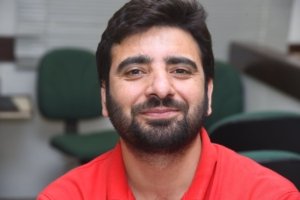Federal Minister for Education and Professional Training, Shafqat Mahmood after taking the oath of office and on a number of occasions had vowed to introduce a uniform syllabus under a new education policy during the tenure of the incumbent government. This was published by mainstream media including Dawn.
PTI had been making such statements long before and soon after it assumed the power after elections in July last year.
When the rationale, vision, and practicability with regard to the plan was started to be discussed and questioned by academia and other quarters, the government took a U-turn here too.
Contrary to his earlier statements, the minister was reported by The News (March 21, 2019) to have dismissed a media report which claimed that his government was planning to remove O and A-level education in order to introduce a uniform education system. In utter disregard of what he had been stating before, he considered the implementation of uniform education ‘impossible’ even in a decade.
What does this U-turn suggest? Does it suggest the idea is against its class interest and the Pakistan Tehreek Insaf (PTI) was using the uniform education mantra as part of its so-called ‘change’ sloganeering without giving it a serious thought? Does it suggest that reigning in the powerful elite private schools and seminaries would pose a threat to the ruling party as those benefiting from two systems are part of the government directly or indirectly?
The social media activists of PTI may encounter this critique by saying that the plan might have been revised to take some practical steps leading towards the ultimate aim. Saying that the introduction of uniform education is impossible even in ten years is more evidence of a flight from the plan rather than taking a careful and deliberate revision for quality education.
An article titled ‘Uniform Education’ was published in ‘The News’ on Feb 11, 2019, The writer, a researcher, and an international development professional, questions the practicability of a uniform education system in the country if introduced as per public pledges made by the incumbent government after it came into power.
The article poses two fundamental questions: (a) will the uniformity in education be implemented across-the-board, including elite private schools and madrassas? (b) What elements for effective school education will be made across these systems?
The article was written a month before the government took this U-turn. The writer criticizes the government for pushing for a uniform education without clarity of vision, purpose and proper consultation with relevant stakeholders including teachers, principals, and parents. He calls such a consultation a prerequisite without which it would mean an education system informed by whims of selected few, with no technical background in the field of education.
But, why these selected and elected few would introduce any reforms putting the interests of their own class at stake? Like its predecessors, the incumbent government, too, is more a representative of the landlords, capitalists, and protagonists of privatization of institutions and commercial education rather than an education system meant to bring transformation in the society.
The writer stresses upon improving the public sector schools rather than bringing it on a par with other elite private schools. But, what about the impact the private sector has inflicted upon public sector institutions, the writer does not say anything on it.
The children of bureaucrats, parliamentarians, generals, judges, principals, and teachers are enrolled in elite private schools. If the children of the affluent class and rulers study in a uniform education system, it can result in accountability and quality.
Would those in power bother to correct the education system if their own children do not study at public sector institutions?
 Noor Akbar is doing MEd at the Institute of Education Development of the Aga Khan University, Karachi an equivalent of MPhil leading to PhD. He is currently teaching at AKES school Karachi.
Noor Akbar is doing MEd at the Institute of Education Development of the Aga Khan University, Karachi an equivalent of MPhil leading to PhD. He is currently teaching at AKES school Karachi.

The High Asia Herald is a member of High Asia Media Group — a window to High Asia and Central Asia

